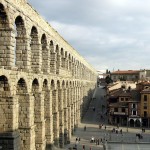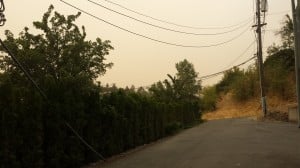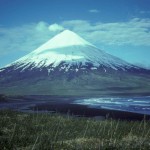While reading The Lost Language of Plants: The Ecological Importance of Plant Medicines for Life on Earth recently, I found myself shocked at how I’d completely ignored the ecological impacts of modern medicine on the environment. The book goes into great detail about how the concentrated chemicals that make up pharmaceuticals end up in our water and air, in some cases excreted from the human body absolutely unchanged. Buhner points to a whole range of environmental problems triggered by modern medicines, from antibiotics to birth control pills to radioactive tracers used in diagnostic medicine. We think that we are living in a time of scientific miracles, when our lifespans are being magically enhanced by medical knowledge, but it may just be that we are saving a few lives in the short term just to destroy even more lives in the not so distant future. In fact, that deadly future is already be here.
We are living in the time of antibiotic resistant infections, caused by the active mutation of bacteria in response to our overuse of antibiotics. We have already killed the biodiversity in the soil of many of our agricultural lands with those same drugs, and the bugs that remain are not the friendly kind that help our plants grow. Meanwhile, we have irradiated sea life that is hundreds of miles away from the largest superfund site in the US, but that sort of site is not the only source of radioactivity in our water system. The medical use of radioactive substances contributes even more pollution to our urban environment.
The really shocking thing to realize is that this is just one area of our lives that is out of whack with the planet we live on. Our modern lives are simply filled with examples of how we have ignored the wider impacts of our actions on the planet, the plant and animal communities, and on ourselves. We focus so hard on one tiny area of interest while ignoring the wider context. In the process, we not only miss major, glaring details. We are literally killing ourselves in the name of life saving measures.
Contemplating the difference in philosophy between plant based medicine paths and the pharmaceutical medicine path has highlighted this sort of short-sightedness for me in the last few weeks. I find myself wondering if this moment in history will be superceded by a time when we are able to benefit from both the scientific advances we’ve made in the last two hundred years AND fit our advances into the wider needs of the planet we live on. I wonder if there won’t come a day when the evidence of environmental damage from technology will become so strong that I have to abandon computer use entirely and turn into a latter day Luddite protesting the destruction of the Earth rather than the loss of artisinal work. (Mind you, I have no appetite for destruction of machines or anything else, really, so I wouldn’t make a very good Luddite in the original sense of the word!)
I do find some comfort and hope in the fact that there are researchers who actively work on understanding how our technologies fit into the planet, and finding ways to make things that don’t destroy the planet at all. We are so far off from getting it right, though. We have so much more to learn, and I fear that we will kill ourselves before we figure it out.
In the meantime, all I can do is try to find ways to limit and mitigate my own negative impacts on the planet. In order to do that, I must strive to see the bigger picture. To see the bigger picture, I have to take a step back, stop following the easy flow of society, and question everything. To find answers to my questions, I must quiet the chatter in my head to listen and watch, mindfully. The hard part, of course, is being faithful to the answers I find.
















